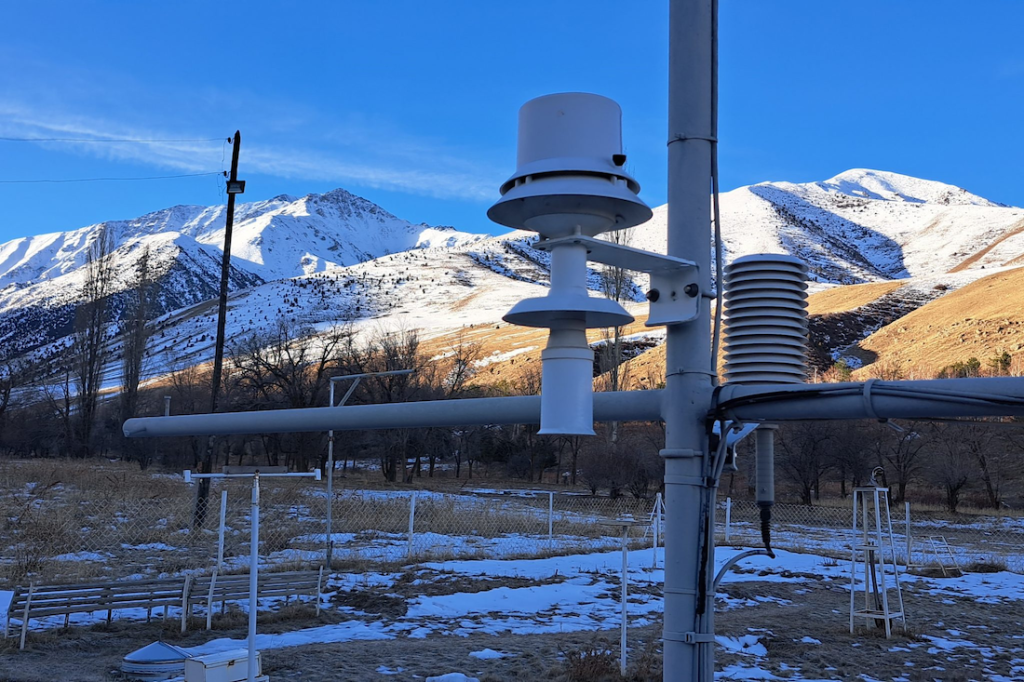Celebrating Earth Day 2025: Innovations from the Internet Society Foundation’s Research Grant Program
Every year, on 22 April, the world comes together to celebrate Earth Day and reflect on the importance of sustainability and environmental stewardship. As we mark this special day, we are reminded that creating new knowledge is critical to taking the right steps towards a greener future. In that spirit, the Internet Society Foundation is proud to highlight the work of three groundbreaking research initiatives funded through our Research Grant Program. These projects are helping shape a more sustainable future by building a greener Internet and using technology to address environmental challenges.
Empowering Communities Through Digital Sustainability: The Green Web Foundation
The Green Web Foundation is pioneering efforts to reduce the Internet’s carbon footprint. Their work aims to shift digital infrastructure away from fossil fuels by focusing on sustainability at every level of Internet use. Green Web Foundation’s research focuses on practical tools and prototypes that can help developers track and manage their websites’ environmental impact.
One of their standout projects, CO2.js, allows developers to estimate the carbon emissions related to using their apps, websites, and software. This tool empowers developers to make eco-friendly choices and helps companies adopt green hosting solutions. Interestingly, over half of the largest websites are already on green hosting, signaling a positive shift toward sustainable practices. The Green Web Foundation’s work also includes the development of carbon.txt, a protocol designed to provide easy access to sustainability data for any website. By enabling transparency, these initiatives contribute to a more sustainable digital ecosystem.
Through their fellowship program, the Green Web Foundation has also brought together a diverse group of researchers and activists from across the globe. The Green Web fellows focus on how digital rights and climate justice intersect, providing an interdisciplinary approach that ties together policy, technology, and community needs. Their work aims to improve the digital infrastructure’s sustainability and empowers communities, particularly those in the global South, to make decisions about their digital and energy futures.

Digital Sovereignty, Disaster Resilience, and Connectivity: Research in Kyrgyzstan
In Kyrgyzstan, a project focusing on using Internet of Things (IoT) technology is greatly impacting environmental sustainability and digital resilience. This initiative, supported by the Internet Society Foundation, uses low-cost sensors to collect meteorological data in remote regions that lack cellular coverage. This data is crucial for disaster mitigation efforts, such as predicting floods and other natural disasters that often affect rural communities in the country.
The Internet Society Kyrgyzstan Chapter’s project has demonstrated that affordable infrastructure can provide real-time data without the high costs of satellite connectivity. By empowering local communities with the tools to monitor their environments, this research enhances disaster resilience and contributes to the broader goal of sustainable development. The data generated by these IoT networks is also being used for AI model training with tiny ML, which will further improve disaster forecasting in high-altitude regions like Kyrgyzstan and the rest of the Third Pole region, a part of the world particularly prone to natural disasters and vulnerable to climate change.
Through their work, the Internet Society Kyrgyzstan Chapter ensures that remote communities are better prepared for the challenges posed by environmental and digital disruptions.
Building a More Sustainable Future: The Critical Infrastructure Lab at the University of Amsterdam
The Critical Infrastructure Lab at the University of Amsterdam focuses on how Internet infrastructure reconfigures power relationships and resource dependencies, aiming to serve the public interest better. Their research is structured around three key streams: environment, geopolitics, and standards. The environmental stream explores the human rights impact of critical raw materials used in digital infrastructure and the conflicts surrounding water, energy, and land use by data centers. The geopolitics stream investigates the role of governments and multilateral organizations in shaping global communication networks. At the same time, the research on standards examines how the development of technologies like 5G stand to impact global infrastructure and power dynamics.
The research is helping us improve our understanding of the driving forces behind the reconfiguration of power and resource dependencies surrounding Internet infrastructure. It also explores how less powerful stakeholders can influence Internet infrastructure through governance and standard-setting. Furthermore, the project aims to re-imagine alternative infrastructural futures.
The outcomes of this research provide concrete recommendations for various stakeholders, including civil society organizations, policymakers, standards development organizations, and researchers across multiple disciplines. These insights can help stakeholders adjust their strategies to a shifting political, technological, and environmental landscape, ultimately contributing to a more sustainable and equitable digital infrastructure.
These three research projects are just a few examples of how the Internet Society Foundation funds critical research needed to create a more sustainable future. By supporting research projects combining technology with environmental sustainability, we empower researchers, communities, and developers to take meaningful action.
